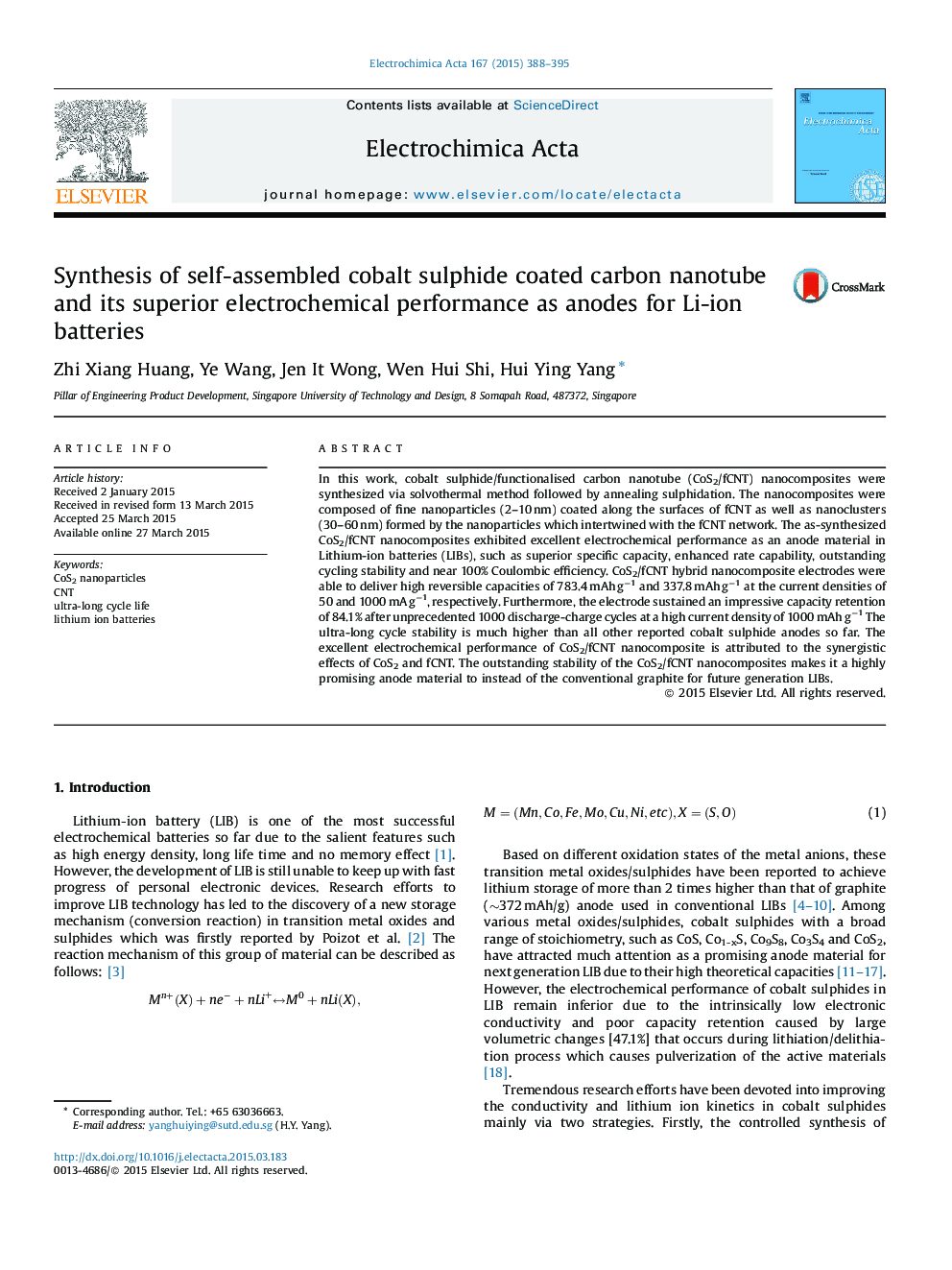| Article ID | Journal | Published Year | Pages | File Type |
|---|---|---|---|---|
| 184366 | Electrochimica Acta | 2015 | 8 Pages |
In this work, cobalt sulphide/functionalised carbon nanotube (CoS2/fCNT) nanocomposites were synthesized via solvothermal method followed by annealing sulphidation. The nanocomposites were composed of fine nanoparticles (2–10 nm) coated along the surfaces of fCNT as well as nanoclusters (30–60 nm) formed by the nanoparticles which intertwined with the fCNT network. The as-synthesized CoS2/fCNT nanocomposites exhibited excellent electrochemical performance as an anode material in Lithium-ion batteries (LIBs), such as superior specific capacity, enhanced rate capability, outstanding cycling stability and near 100% Coulombic efficiency. CoS2/fCNT hybrid nanocomposite electrodes were able to deliver high reversible capacities of 783.4 mAh g−1 and 337.8 mAh g−1 at the current densities of 50 and 1000 mA g−1, respectively. Furthermore, the electrode sustained an impressive capacity retention of 84.1% after unprecedented 1000 discharge-charge cycles at a high current density of 1000 mAh g−1 The ultra-long cycle stability is much higher than all other reported cobalt sulphide anodes so far. The excellent electrochemical performance of CoS2/fCNT nanocomposite is attributed to the synergistic effects of CoS2 and fCNT. The outstanding stability of the CoS2/fCNT nanocomposites makes it a highly promising anode material to instead of the conventional graphite for future generation LIBs.
